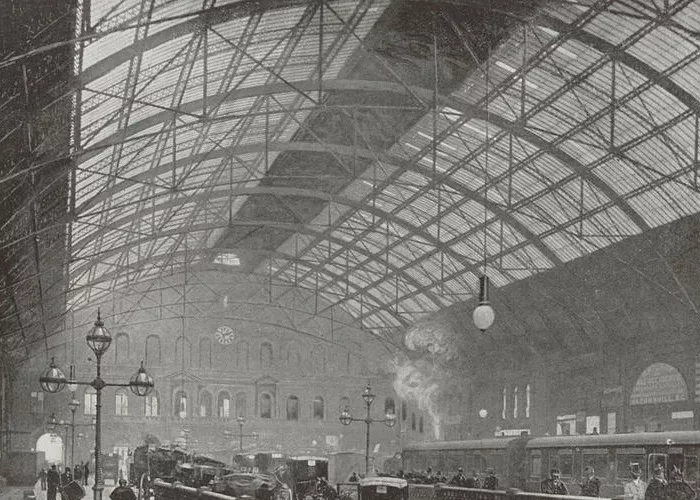December 5 has been a notable date in British history, marked by a variety of significant events across different centuries. This article will explore these events in detail, providing context and implications for each occurrence.
What Happened on December 5 in British History?
The Collapse of Charing Cross Railway Station Roof (1905)
On December 5, 1905, a tragic event unfolded in London when the roof of Charing Cross Railway Station collapsed. This disaster resulted in the death of five people and injured many others. The incident highlighted the importance of safety regulations in construction and railway infrastructure.Context and Consequences
Charing Cross Station was an essential hub for rail travel, connecting London to various destinations. The collapse raised serious concerns about the structural integrity of railway stations across the country. In the aftermath, investigations were conducted to determine the cause of the collapse, focusing on design flaws and maintenance issues. This event contributed to stricter safety standards in railway construction and maintenance, ultimately leading to improvements in public transportation infrastructure.
The Establishment of the Irish Free State (1921)
Another pivotal event occurred on December 5, 1921, when British government officials and Irish leaders signed the Anglo-Irish Treaty. This treaty established the Irish Free State, marking a significant step towards Ireland’s independence from British rule.Details of the Treaty
The Anglo-Irish Treaty was negotiated by prominent figures such as Arthur Griffith and Michael Collins for Ireland, and British Prime Minister David Lloyd George. The treaty stipulated that Ireland would have its own parliament and control over domestic affairs while remaining part of the British Commonwealth. However, it also included provisions for Northern Ireland to remain under British governance.Impact on Ireland and Britain
The signing of this treaty was met with mixed reactions in Ireland. While many celebrated it as a step towards independence, others opposed it, leading to civil unrest and eventually the Irish Civil War (1922-1923). The treaty’s legacy continues to influence Anglo-Irish relations today.
The Great Smog of London (1952)
On December 5, 1952, London experienced one of its most infamous environmental disasters—the Great Smog. A combination of cold weather and air pollution led to a thick fog that enveloped the city, causing severe health issues.Health Crisis
The smog lasted for several days and resulted in thousands of deaths due to respiratory problems exacerbated by the polluted air. Estimates suggest that around 4,000 fatalities occurred during this period. Hospitals were overwhelmed with patients suffering from bronchitis and other respiratory illnesses.Legislative Changes
In response to this crisis, the British government implemented the Clean Air Act of 1956. This legislation aimed to reduce air pollution by regulating emissions from factories and encouraging cleaner heating methods. The Great Smog remains a critical moment in environmental history, highlighting the need for sustainable urban planning and public health measures.
The First Civil Partnership Registration (2005)
On December 5, 2005, a landmark moment for LGBTQ+ rights occurred in the UK with the registration of the first civil partnership under the Civil Partnership Act 2004. This act allowed same-sex couples to legally formalize their relationships with many of the same legal rights as marriage.Significance of Civil Partnerships
The introduction of civil partnerships marked a significant shift in societal attitudes towards LGBTQ+ individuals in Britain. It provided legal recognition and protections that had previously been denied. The first civil partnership was registered between two men in London, symbolizing progress towards equality.Broader Implications
The Civil Partnership Act paved the way for further advancements in LGBTQ+ rights, culminating in the legalization of same-sex marriage in England and Wales in 2013. This change reflected a broader societal acceptance of diverse sexual orientations and relationships.
Witchcraft Condemnation by Pope Innocent VIII (1484)
On December 5, 1484, Pope Innocent VIII issued a papal bull condemning witchcraft. This decree led to increased persecution of alleged witches throughout Europe.Historical Context
The late 15th century was marked by widespread fear of witchcraft, often associated with heresy and moral decay. Innocent VIII’s bull authorized inquisitors to investigate witchcraft claims vigorously, which contributed to infamous witch hunts across Europe.
Conclusion
December 5 has witnessed various pivotal moments throughout British history that have shaped societal norms, governance structures, and public health policies. From tragic events like the Charing Cross Station collapse to landmark legislative changes such as the Civil Partnership Act, this date serves as a reminder of Britain’s evolving landscape through time. Each event reflects broader themes within British history—issues of safety, governance, human rights, and societal change—that continue to resonate today.
Related Topics:

